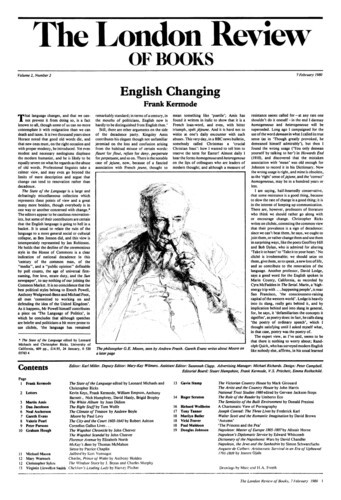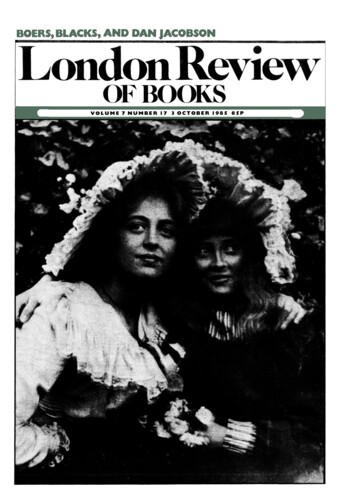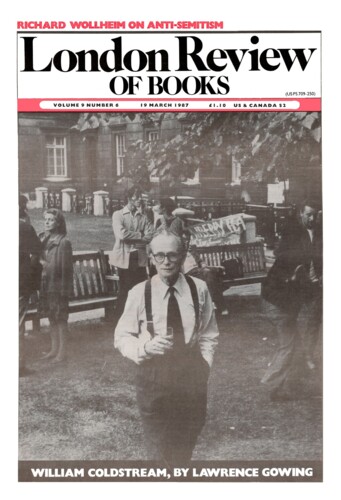A Charismatic View of Pornography
Richard Wollheim, 7 February 1980
It might be supposed that in a liberal society, such as ours professes to be, the attitude of the state towards obscenity, or the function of the public censor, should not give rise to problems of any great difficulty – details apart – and that there is a widely accepted model to which thinking on these issues would try to conform. The model is that provided by John Stuart Mill’s essay On Liberty, and the doctrine that it endorses runs something like this. Some people like obscenity, and some don’t, and those who don’t tend to find it filthy, horrible, revolting, and, probably, immoral. But even if obscenity is filthy, horrible, revolting, even immoral, those who want it should be allowed to have it unless their doing so causes harm and this harm outweighs any good that it might also cause. That something is immoral does not, as such, justify intervention at law: what is additionally required is that it should on balance bring about harm, and, if it does, this suffices for legal intervention whether or not there is immorality. The Williams Commission accepts what it calls ‘the harm condition’, and goes on to ask what kinds of harm there are, which of those is likely to attach to obscenity, and does any?




